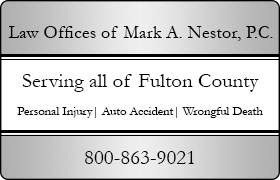Conley Trusts Lawyer, Georgia
Sponsored Law Firm
-
 x
x

Click For More Info:
-
Law Offices Of Mark A. Nestor, P.C.
3680 Holcomb Bridge Road Suite 150 Norcross, GA 30092» view mapPersonal Injury, Auto Accident, Wrongful Death Norcross Accident & Injury Law
Attorney Nestor has been licensed to practice in the state of Georgia since 1995. He helps clients in Accident & Injury, Estate, Lawsuit & Dispute, Traffic and Real Estate matters.
800-863-9021
William T. Hudson
Wills, Trusts, Estate, Accident & Injury
Status: In Good Standing Licensed: 51 Years
Beth Boone
Employment Discrimination, Medical Malpractice, Trusts, Health Care
Status: In Good Standing
Kristina M. Jones
Products Liability, Securities, Business, Trusts, Estate
Status: In Good Standing Licensed: 25 Years
 Mark Nestor Norcross, GA
Mark Nestor Norcross, GA AboutMark Nestor
AboutMark Nestor ServicesPractice Areas
ServicesPractice Areas
